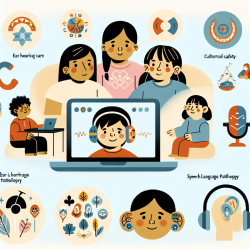Introduction
In the realm of pediatric healthcare, physician-researchers play a pivotal role in advancing medical knowledge while providing patient care. However, the dual responsibilities inherent in their roles often present ethical and practical challenges. The research article "Accountability and Pediatric Physician-Researchers: Are Theoretical Models Compatible with Canadian Lived Experience?" explores these complexities and offers insights that can enhance the practice of pediatric physician-researchers.
Theoretical Models and Real-World Challenges
The study examines three dominant theoretical models that frame the expectations of physician-researchers: the similarity position, the difference position, and the middle ground. Each model offers a distinct perspective on how clinical duties and research obligations should be balanced:
- Similarity Position: This model views medical research as an extension of medical care, suggesting that clinical norms should take precedence.
- Difference Position: This approach emphasizes the distinct goals of research and clinical care, advocating for a clear separation of responsibilities.
- Middle Ground: This perspective seeks to balance the obligations of both roles, recognizing the importance of ethical duties to both patients and research participants.
Findings and Implications for Practice
The study's interviews with 30 physician-researchers across major pediatric hospitals in Canada revealed that none of the existing models fully encapsulate the lived experiences of these professionals. This misalignment suggests two potential paths forward:
- Enhanced Training: Physician-researchers may benefit from improved training that better aligns theoretical models with the realities of their dual roles.
- Model Reevaluation: There is a need to develop new models that more accurately reflect the complex interplay of clinical and research responsibilities.
By addressing these gaps, we can foster a more nuanced understanding of accountability in pediatric research, ultimately leading to better outcomes for children.
Encouraging Further Research
For practitioners in the field of pediatric healthcare, this study underscores the importance of ongoing research and dialogue. By engaging with the findings, practitioners can contribute to the development of models that are both ethically sound and practically applicable. This approach not only enhances professional practice but also ensures that the highest standards of care and research are maintained.
Conclusion
The dual roles of physician-researchers are fraught with ethical and practical challenges. By critically examining existing models and embracing a data-driven approach, we can create a framework that supports both the professional and ethical responsibilities of these practitioners. This, in turn, will lead to improved healthcare outcomes for children.
To read the original research paper, please follow this link: Accountability and pediatric physician-researchers: are theoretical models compatible with Canadian lived experience?










